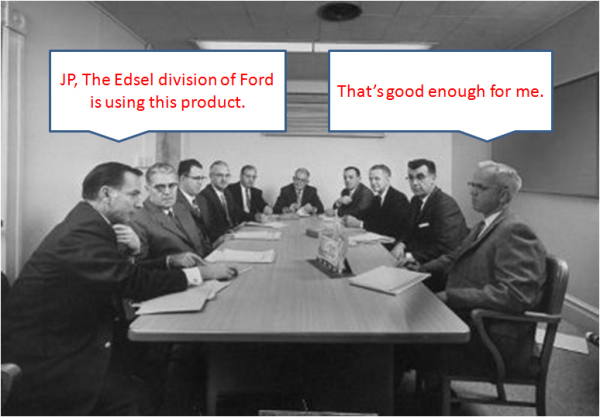Of all the content that companies create for marketing, “user stories” confuse the most. The confusion comes from its extremely uneven performance at different marketing functions.
For salespeople, a well written story about a successful user, who has a situation similar to a potential customer, is a big help in closing a sale. But buoyed by positive feedback from the sales department many marketers overuse this type of content and apply it for less appropriate functions. The problem is that while customers in “similar situations” find user stories interesting, customers with dissimilar situations do not.
If your user story is written about a Fortune 500 customer, potential small business readers will yawn. Don’t expect a big city retailer to be interested in reading a user story about a small town store. Other kinds of content more easily cross these divides, for example, trend stories in a small market can be as relevant in a big one. I spend many years with a trade magazine where we were always amazed at the extremely low readership scores that user stories received. Where routine articles in the publication would be read by anywhere from 40 to 60% of subscribers, user stories consistently received scores in the 10-15% level.
In a study I will be releasing through Alethea Research in January, I tracked the customers of 34 different suppliers in a market and asked them to check if they felt if supplier provided “user stories,” motivated them to be more likely to want to buy products from the sponsoring suppliers. About a third (36%) said user stories positively motivated them, but this was a significantly lower score than many other content forms received. In addition, the customer bases of the individual 34 companies had different scores. For the customers of the company with the lowest score, only 29.6% said user stories positively motivated them. At the other end of the spectrum, 49.3% of customers of a different company said they were motivated by user stories. That's about a 20% spread between them. Lower scores seemed to go to companies whose products and solutions were better established and understood, companies with products that were generally newer or more unusual received higher scores. There seems to be less interest in reading user stories about prodcuts that are well understood or more familiar.
Bottom line: marketers need user stories. If you can create a series of them covering the typical usage situations of your products you can help your sales staff close sales. Keep in mind that the popularity of user stories will vary company to company, and product to product, depending on how new, unusual, or newsworthy products are. But just because your sales staff loves user stories don’t think they will help with your web site's search engine optimization (SEO), build readership for your newsletter, or provide down-loadable content to fuel a lead generation program. For those functions, there are other kinds of content that will do a better job. To hear more about my content usage study, sign up for my "Marketing Broadcast"newsletter.
